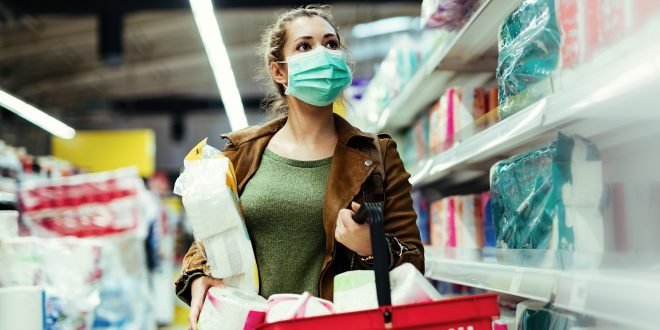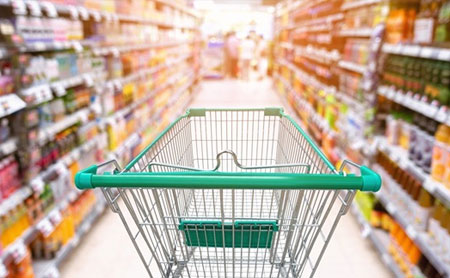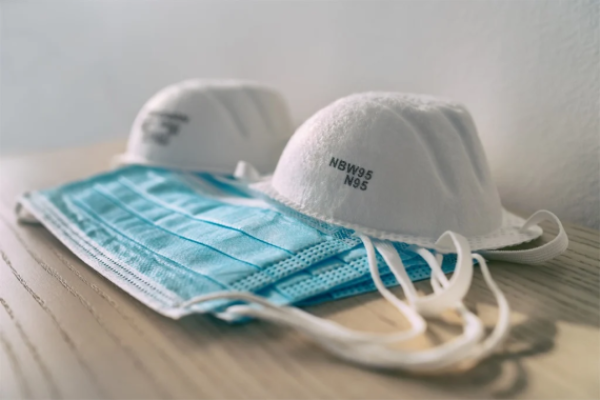Private Label products experienced startling double digit growth during the initial period of South Africa’s lockdown. This was particularly evident during March where a massive 27.2% increase in sales took place, amidst pre-lockdown stockpiling, versus the same month in 2019. This positive performance continued throughout April (19.3%), May (18.5%) and June (18.2%), with broader year on year sales growth at 10.5% up to February 2020.
Private Label’s (PL) positive trajectory was also evident in terms of its annual share of the South African FMCG basket at 20.4% (end of June 2020) and a particularly strong result for Quarter 2, 2020 at 23.5%.
These findings stem from Nielsen’s latest State of Private Label Report which shows that the PL sector now commands R63-Billion in annual consumer goods sales up from R55.4-Billion in 2019. However, this is relative to named brands, which continue to dominate with R245-Billion in annual sales.
Commenting on this overall positive performance, Nielsen Director Retail Vertical Gareth Paterson says; “It is the value for money proposition as well as the availability of quality private label (PL) brands that ensured the growth of the sector during the lockdown period. This allowed it to build on the momentum and innovation it has displayed in previous years.
“There’s no doubt that the gains made by PL during the lockdown will continue based on the increased consumer exposure to quality retailer-owned brands. This will drive longer-term adoption for PL in many instances, as once consumers trial these products, they appreciate the quality and price competitiveness of these goods.”
Pervasive products
When looking at an annual performance level, the Nielsen report reveals the pervasiveness of PL brands, with an average of 486 of these items per retail store in South Africa. Interestingly, in the 13 weeks of lockdown, there was an average of 54 more private label items on shelf. Paterson comments; “These increased numbers reflect the investment that retailers continue to make into expanding their PL repertoires, which has driven innovation, product choice for consumers, and ultimately sales.”
Looking at evolving consumer relationships with PL, 71% of shoppers said they compare the price of store brands with named brands in 2019, down from 80% in 2018 and 77% in 2017. This shows a decline in the pure price comparison factor when consumers choose between the two.
An analysis of the performance of specific PL categories saw frozen and canned groceries along with personal care products emerging as winners, with 61% of consumers saying they are buying more of frozen and chilled foods versus 12 months ago, followed by 54% who are buying more personal care products (Shampoo, soap, hair & body cleansers) in PL and 51% who are buying more PL products in canned and packaged groceries.
Top ten
Within the top-ranking PL products over the last year, ready to eat bread rolls showed the biggest increase with a 32% year on year growth in sales, while desserts, cakes and sweet products, and refrigerated dinners were the same in the third and fourth place.
Within the specific 13 week lockdown period, the Top 10 Private Label Categories ranked according to combined sales, market share and growth saw meat (raw and refrigerated) followed by milk and refrigerated dinners as the best performers.
No longer a brand without a name
In terms of South Africans embracing the so-called ‘no-name brand’, it’s clear that the lockdown period has had a clear and significant effect on accelerating the growth of these products.
Paterson states; “The quality of private label goods is no longer seen in a negative light. South African consumers now consider these products as worthy alternatives; even though this is one of the most trying and financially testing times they have ever experienced. Based on this deepening relationship, we expect a continued upward trend in the purchase of PL products and will see these items taking a greater share of consumer baskets”.
“The perceived line between PL and branded goods is blurring. The key is to understand shifting consumer behaviour and providing shoppers with quality, value for money offerings that will help offset consumers growing financial challenges, no matter which sector you play in.”
Article Source: https://www.africanretail.com/nielsen-private-label-sales-soar-during-covid-19-lockdown/





